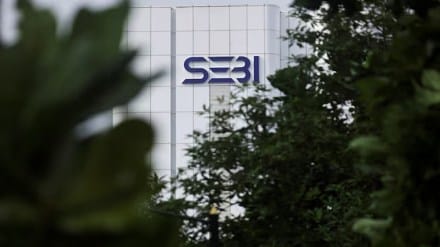The Securities and Exchange Board of India (SEBI) is expected to introduce sweeping changes in the guidelines for listing of small and medium enterprises (SMEs). These include increasing the lot size to Rs 3-5 lakh and pushing up the track record and market-making requirements to five years each, said exchange and merchant banking sources.
The move comes after the markets regulator warned of significant froth in the segment due to irrational exuberance amid traders and retail investors. Senior SEBI officials recently said that they will come out with stricter proposals for SME listing before the end of the current year.
The markets regulator has been seeking recommendations from the exchanges and merchant bankers in the past few months. As part of the draft consultation paper, sources expect the regulator to bring both exchange eligibility and other criteria on a par with each other.
“Sometimes smaller companies tend to use the regulatory arbitrage opportunity by listing on one exchange when it doesn’t qualify for the other exchange platform,” said a merchant banking source.
Currently, the two stock exchanges–the BSE and the National Stock Exchange (NSE)–regulate the SME listing process. However, they have separate criterion on their respective platforms–NSE emerge and BSE SME Exchange–except for a common eligibility criteria of having a post paid-up capital of below Rs 25 crore and a track record of three years.
Exchange sources said that they have recommended an increase in the minimum application size to Rs 3-5 lakh from the current Rs 1 lakh, in order to deter retail investors from punting into the micro-companies market. The application size has not been reviewed since its inception in 2012.
The market-making agreement is also expected to be extended to five years from the current three years. Market makers create a market for SME shares by providing two-way quotes for 75% of trading hours from the day of listing. Further, even the requirement of track record may be increased from three years to five.
“Proprietary firms, especially the ones that convert companies right before listing, don’t necessarily have the best track record of audited books. They might have to wait until being able to list,” said another merchant banking source.
Among others, there is likely to be an overall tightening of underwriting rules, higher profitability and net-worth requirements, increased promoter lock-ins, and reshuffle of the portions reserved for qualified institutional buyers (QIBs) and anchor investors, according to sources aware of the discussions.
SEBI’s recent orders against companies such as Debock Industries and holding of listings such as that of Trafiksol show how the regulator has grown wary of companies using the SME platform as a way to siphon off and misuse funds.
The regulator has been flagging concerns about the lack of proper due diligence, fraudulent activities, and possible misuse of funds raised from SME initial public offerings (IPOs). Recently, SEBI also asked merchant bankers and exchanges to be more stringent with filing and clearing draft papers.
The NSE introduced a condition of positive free cash flow (FCF) for at least two years out of the three financial years preceding the application. The exchange has also imposed a cap of 90% on listing gains to avoid colossal spikes.
“It is an undisputed fact that there is froth and frenzy in the IPO market, which can be seen with a company like Resourceful Auto having two showrooms and eight employees, getting oversubscribed 419 times,” said VK Vijayakumar, chief investment strategist at Geojit Financial Services. “There is manipulation in SME stocks since the floating stock is limited and a cartel can jack up the prices,” he added.
Measures such as implementing graded surveillance measures and additional surveillance by the exchanges, and some brokers prohibiting trading in highly speculative SME stocks have reduced the frenzy to an extent, he said.
